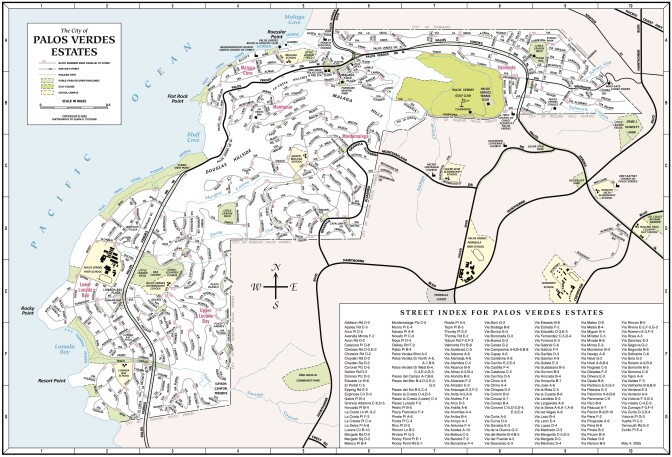This story is free to read because readers choose to support LAist. If you find value in independent local reporting, make a donation to power our newsroom today.
In resolution to an ugly chapter, Palos Verdes Estates agrees to ensure access to Lunada Bay

Palos Verdes Estates on Friday agreed to open up the popular winter surfing spot Lunada Bay to out-of-towners, ending a years-long legal dispute over who has the right to use the beach. The city was accused of failing to prevent bullying and harassment to surfers not affiliated with the local group known as the Lunada Bay Boys, often described as a surf gang.
“Locals only” was the reception for unfamiliar visitors. The group was accused of harassing swimmers, surfers and beachgoers verbally and throwing bottles and even getting into fist fights. Lawsuits filed against the city and Lunada Bay Boys claimed that local police did too little to stop the harassment.
Under the consent decree signed Friday, the city must improve the blufftop by installing drought tolerant plants; maintaining a trail for hikers, dog walkers and surfers; and adding signs making it clear that the blufftop and the shoreline are “open to everyone.”
Palos Verdes Estates also has to add street signs directing visitors to Lunada Bay.
Kate Huckelbridge, California Coastal Commission executive director, praised the resolution, saying it underscored that all beaches are “safe and welcoming for visitors regardless of their ZIP codes.”

How we got here
In 2016, a coalition of plaintiffs filed a lawsuit against the Lunada Bay Boys and the city of Palos Verdes Estates accusing them of violating surfing rules, threatening and harassing visitors to the beach with violence, and even holding visitors underwater.
According to the lawsuit, the surf gang at one time posted a sign at the top of the bluff that read "Unlocals will be hassled." It also alleged city officials, including the police department, knew about the harassment and turned a blind eye.
What the plaintiff's attorney says
Kurt A. Franklin, a plaintiff's attorney, called it "a new day" and said they'd achieved "what we set out to do more than eight years ago."
In a statement released to LAist he said of his clients: "They simply wanted the problem of well-known localism recognized and fixed. The waves, beach and coast belong to all."
Read the consent decree
Updated September 20, 2024 at 7:58 PM PDT
This story updated with the statement from an attorney for the plaintiffs.











